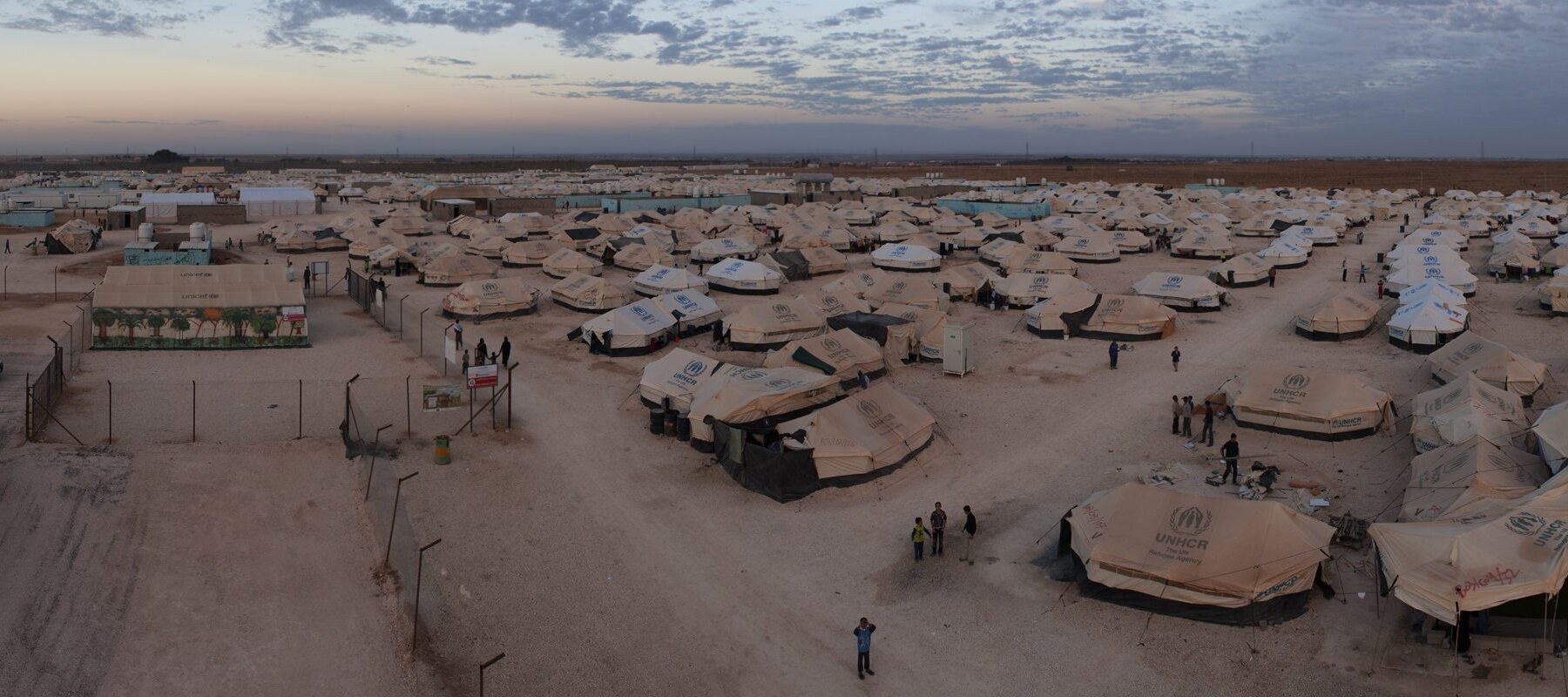Nearly 10 years ago, Lehigh University was the first university in North America to be given access to the United Nations created documentary/VR experience, “Clouds Over Sidra,” which allows viewers to approximate life in the Za’atari refugee camp in Jordan.
Early this September, audience members from Peru, Bangladesh, Paraguay and here in Bethlehem got beyond virtual experience and heard first-hand what life is like in a refugee camp that has now become the fourth largest “city” in Jordan.
The event was co-sponsored with the NGO Bridges 2030, represented by its managing director, Fernando Ramirez, and in coordination with Mohamed Al-Taher, an external relations officer with the United Nations High Commission for Refugees at the Za’atari camp.
“Too many people that I speak with think the refugee challenges are what they see on the news periodically or learn from social media,” Ramirez said. “I submit to you that that’s not enough.”
Ramirez shared statistics from the UNHCR, stating that 82.4 million people are forcibly displaced worldwide and about half of them are children. In addition, Za’atari camp now holds 80,000 Syrian refugees.
According to Al-Taher, refugees and asylum seekers would swarm the Jordanian border in numbers in the 5,000s and, once across, entire families would begin living in tents at the refugee camp that were not much larger than some dorm rooms on Lehigh University’s campus.
Though tents have since been converted to more stable caravans, community, health, and food centers have been adeptly established, and refugees have been compassionately accepted into the Jordanian community regardless of nationality, there is still so much that needs to be done on a global scale with financial assistance, local volunteering and even just the treatment of refugees with respect.
“The biggest challenge that we face is lack of funds, not only for UNHCR but for other UN agencies,” Al Taher said. “All of us are human beings. We need to feel that you love me, I love you and we love each other.”
Abdallah Ibrahim, a colleague of Al-Taher’s working in a community-based service unit in Za’atari camp, answered a common question among student-attendees as to what global citizens can do to offer refugees the opportunity to maintain a quality of life and hopefully return home: to Ibrahim it was important to break the silence on the plights of refugee-living.
“We spoke about their issues, we spoke about their environments and we never really shied away from the realities of the things that they had to go through,” Ibrahim said.
Protecting human dignity is part of the UNHCR’s mission, but Ramirez and Al-Taher agreed that it will take an immense amount of generosity on behalf of the global community to fully fulfill this goal.
“Moving the bar from sympathy to empathy is mission critical to providing opportunities for many of the challenges around the world,” Ramirez said.
